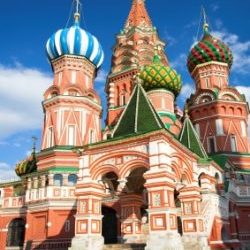
Russia: Court will not look behind lawyers’ role
Legal advice privilege extends to communications with foreign lawyers working in-house even if they are not recognised or regulated as “professional lawyers”, the High Court has ruled.
The only requirement for legal advice privilege to attach “is that they should be acting in the capacity or function of a lawyer”, said Mrs Justice Moulder.
“There is no additional requirement in my view that foreign lawyers should be ‘appropriately qualified’ or recognised or regulated as ‘professional lawyers’.”
In PJSC Tatneft v Bogolyubov & Ors [2020] EWHC 2437 (Comm), the second defendant challenged the claimant’s assertion of privilege for communications with its in-house team in Russia.
In-house lawyers are not members of the Russian Bar and their activity is not regulated, unlike that of self-employed, independent and officially registered advocates. The closest concept to privilege in Russia is ‘advocate’s secrecy’, which does not extend to non-advocate in-house lawyers.
Having reviewed the case law, Moulder J said it was the function of the relationship and not the status of the lawyer which was relevant when assessing whether communications with foreign legal advisers attracted privilege.
“In my view it would lead to uncertainty (and thus inconvenience) if, even where the relationship of lawyer and client subsists, the court had to go further and examine particular national standards or regulations in order to determine whether in a particular case a party was protected from the disclosure of his communications with his lawyer.
“It would also raise issues of comity if the court were obliged to express views on the qualifications and regulation of foreign lawyers.”
Here, acceding to the application would exclude the clients of all in-house lawyers and a large proportion of other lawyers working in Russia from claiming privilege.
“This would be unfair and inconvenient and illustrates why the courts have not been interested in the foreign lawyer’s training or discipline… and have taken the view that legal advice privilege extends to communications with all foreign lawyers regardless of their ‘particular national standards, regulations or rules with regard to privilege’.”
There was, Moulder J went on, no reason on the authorities to distinguish between private practice and in-house lawyers in this regard.
Were the court to hold that privilege did not extend to in-house lawyers in Russia on the basis that they were not regulated or qualified, “it would have the unfairness that since in house lawyers in Russia cannot be advocates, legal advice privilege could never extend to communications with in-house legal advisers in Russia even though that category of lawyers has been accepted as a matter of English law as being covered by the application of the privilege”.
The judge – a former capital markets partner at City giant Linklaters – said she also had regard to the evidence “that it would be likely to exclude from the scope of English legal advice privilege employees of law firms in Russia”.














Leave a Comment